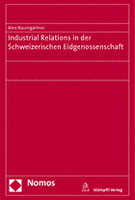 |
|
Welcome to issue no. 4 / 2012 of EWC News. 27th December 2012
|
|
The
Academy for European Works Councils (EWC Academy)
EWC
News appears four times a year.
You can find past issues in the newsletter archives.
|
|
1.
Improved consultation procedures through court rulings?
|
|
There have never been so many legal proceedings concerning the rights of European and SE works councils as in the autumn of 2012. Under the old EWC Directive legal action was an extremely rare exception, with only a few rulings in France worth mentioning. The most significant was the injunction order which enabled the EWC of Gaz de France to stop its merger with Suez in November 2006. The merger could only be concluded following the completion of the consultation procedure in March 2008, with however substantial social benefits for the employees of both companies involved (see report in EWC News 2/2008). Triggering factor: workforce reduction or relocation
European works councils do not take legal action without good reason: the current cases are predominantly triggered by the announcement of short-term tough measures by central management without prior notice. The transformation of the European works council from a "song-and-dance act" into a fully recognized integral part of European Corporate Governance can be substantially accelerated by the recourse to legal action, even though a ruling may not always be necessary. Current cases show that the fact of merely filing a lawsuit can lead to dynamic improvements, which in turn rapidly lead to a better operation of the EWC.
The US automobile supplier Visteon (lawsuit from July 2011)
Visteon is about to be split into three parts which are to be totally or partially spun-off from the group. Lengthy court proceedings would not have been a very meaningful option in the context of this pan-European restructuring. A new structure for the EWC is to be negotiated during the coming weeks. Possible scenarios are three independent European works councils or a structure with divisional committees such as that already existing in EADS, the aeronautics and arms manufacturer (see report in EWC News 1/2012). The EWC Academy has already been acting as adviser to the EWC since March 2011.
The Donata Holding SE (lawsuit from February 2012)
The Donata Holding SE is the parent company of the Coty cosmetics group. The SE works council is demanding consultation rights on a transnational restructuring (see report in EWC News 1/2012). It has also recently developed a business reporting system with support from the EWC Academy (see report in EWC News 3/2012).
The US IT group, Hewlett-Packard (lawsuit from October 2012)
The Norwegian packaging company, Elopak (lawsuit from November 2012)
The lawsuit is a consequence of the relocation of production from the German Speyer plant, where around one third of the workforce is to be dismissed, to the Netherlands and Denmark. Central management is denying the transnational nature of the matter, but has nevertheless started the information and consultation procedure with the EWC on 19th December 2012 in an extraordinary meeting held in Oslo. The renegotiation of the Elopak EWC agreement is also on the agenda. The EWC Academy provides support to the employee representatives. The following texts are available only in German: Further legal proceedings
Upcoming event on the subject |
|
2.
Practical tip: How long does a consultation procedure last?
|
|
The legislator speaks of "…within a reasonable time"
Since
the European works
council has no power of co-determination, it can only play its role before
the final adoption of an opinion. The employer is obliged to wait for
this opinion statement otherwise it is in breach of the law. The
transition from step 1 to step 2 is therefore crucial for the EWC. It
is vital here to critically analyze and verify management figures for
completeness. Phase 1 can only be considered complete once all
information is at hand in order “to undertake an in-depth assessment
of the possible
impact and, where appropriate, prepare
for consultations” (Article 2-f of the original text of the
new EWC Directive). The legislator has expressly not defined a given
timing for this. If central management holds back information, the
whole procedure is delayed. The strength of the EWC lies in a thorough consultation phase
Once phase 2 has begun, it should be fully exploited to widely confront central management with the in-depth deliberations of employee representatives. It may be useful for example to establish working groups to analyze business figures and which may also include restructuring alternatives developed with the help of experts. As long as the opinion has not yet been formulated, the employer must give a motivated response to these alternatives. If more time is needed to counteract the suggestions, the whole procedure is extended.
For a rapid implementation of decisions, it is worthwhile for employers to involve EWC members at an early stage in any planning and to actually consider them not only as confidants or supervisors but as real partners to European Corporate Governance. This is the real key-point in the understanding of the concept of consultation, which originally stems from French industrial relations (see report in EWC News 3/2011). The formal adoption of an opinion statement is not only the expression of an opinion, but a legal act. It gives a green light for the implementation of management plans and brings an end to any further influence of the EWC.
We can conclude with the following advice:
Upcoming event: How to consult properly?
|
|
3. Focus on Industrial Action
|
|
For a long time Ford was considered as a socially responsible company, and more so than other car manufacturers. The closure of the Genk plant with its 4,300 employees before the end of 2014 came as a complete surprise when it was announced on 24th October 2012. Only two years ago Belgium had to get over the closure of the Opel plant in Antwerp with at that time 2,600 jobs (see report in EWC News 3/2010).
Production is to be relocated from Genk to Valencia (Spain), with a possible reinforcement of the German Saarlouis plant. Ford’s European works council met on 7th and 8th November 2012 in Cologne. For this reason 200 employees made the trip from Genk to protest against the closure. There were subsequent outbreaks of violence similar to those usually occurring in Latin countries. At the time, production was at a standstill in Genk. Employees were blocking the delivery of newly manufactured vehicles. With the help of a mediator and after 24 hours of negotiations a solution was reached on 19th December 2012 including the resumption of production. However, a ballot of the workforce will first take place on the result of the agreement on 7th January 2013. The following texts are available only in German:
At Iberia, the Spanish airline, there was to be a work stoppage for the whole week before Christmas in protest against austerity measures planned by management. They had announced on 9th November 2012 to cut back 4,500 of the 20,000 jobs over the next three years with up to a 35% reduction in salary for the remaining employees.
Under the threat of a strike, management was rapidly willing to negotiate. Before an arbitration board on 17th December 2012, both sides agreed to start negotiations on the restructuring plan and to provisionally refrain from any industrial action. The workforce reduction is to be stretched over to the end of 2017 and implemented mainly through early-retirement systems. Aircraft maintenance and handling are not to be spun-off from the company.
Spanish trade union taken to court in London
Iberia merged with British Airways in January 2011. The International Airlines Group (IAG), which is the holding created by the merger, has its headquarters in London. On 30th November 2012 it was announced that IAG is to sue the Iberian pilots’ trade union for damages resulting from strike action in December 2011. The lawsuit was however filed not in Madrid, but with a court in London, where the group’s management is obviously banking on a greater chance of success. The choice of London as a jurisdiction had already made headlines in 2004 in the case of Viking Line, the Finnish Ferry company (see report in EWC News 4/2007).
Catering and Facilities management group stops layoffs
|
|
4. National labour
legislation on the move
|
|
More than twenty years after the resignation of the "iron lady" her restrictive legislation on strikes is being examined for the first time as an offence against human rights in an international court. A lawsuit filed two years ago by the National Union of Rail, Maritime and Transport Workers (RMT), came before the European Court of Human Rights on 27th August 2012. To be able to commence the proceedings, British government has been asked to supply further information to Strasbourg.
The RMT trade union considers that freedom of association is unduly restricted by two regulations: 1. the obligation to communicate to the employer before any strike ballot, which employees with which qualification are invited to the ballot 2. the prohibition of solidarity strikes (secondary action). In March 2011, RMT succeeded, in a much-publicized third instance court ruling, to counter a decision from a lower court which prohibited a local London public transport strike (see report in EWC News 1/2011). The trade union Unite also filed a case in Strasbourg. After a strike against British Airways in 2009 travel concessions had been withdrawn from the striking employees. British labour legislation offers no protection against such discrimination which Unite regards as a violation to freedom of strike as part of collective bargaining.
Political debate makes waves on the Thames
The affair is being followed with a great deal of sensitivity in London in this period of major discontent with the government’s austerity policy. Conservative politicians want to limit the current right to strike even further and if necessary the country should withdraw from the European Union Charter of Fundamental Rights. The situation could become explosive for the British government if a full hearing comes before the Court in the course of 2013. The Labour Party has publicly taken its distance from the lawsuit, since from 1997 to 2010, when they were in government, the Thatcher legislation remained to a large extent in force and unamended. Therefore Labour will virtually be also on trial.
Should the court rule in favour of the trade union, this would be a severe slap in the face for the entire political class in the United Kingdom, from the Conservatives through to Labour. The Thatcher legislation would then have to be amended on orders from Strasbourg. Even a withdrawal from the EU could not prevent this, since the Court of Human Rights is not an organ of the European Union, but of the Council of Europe. In a similar case, in April 2009, it had upheld of a lawsuit against Turkey (see report in EWC News 2/2009). According to analysis from the European Trade Union Institute in Brussels, when it comes to the level of employee participation, the UK has been bottom of the class in Western Europe for years. Employee participation is only weaker in Bulgaria and the Baltic States than in the motherland of Manchester capitalism (see report in EWC News 2/2009). Social-democrat swing in Romania   Political change in Bucharest
has had a definite effect on labour legislation. Romania has been
governed since 7th May 2012 by a social-democratic prime minister,
whose coalition obtained an absolute majority in parliamentary
elections held on
9th
December 2012. On 10th May 2012, the new minister of employment already
submitted a draft bill modifying legislation on social dialogue. It
improves the protection against dismissal for local employee
representatives, obliges employers to provide office space and
facilities and enforces the right to strike, by abolishing compulsory
arbitration before any industrial action. The legislation, passed in
May 2011 by the preceding conservative government, was the most
extensive reform of the collective bargaining system since the fall of
communism. It had led to discord between, on the one hand, the
government and on the other, the trade unions and employers'
associations as well as to an increase in independently organized
collective bargaining parties (see report in
EWC News 4/2011). Political change in Bucharest
has had a definite effect on labour legislation. Romania has been
governed since 7th May 2012 by a social-democratic prime minister,
whose coalition obtained an absolute majority in parliamentary
elections held on
9th
December 2012. On 10th May 2012, the new minister of employment already
submitted a draft bill modifying legislation on social dialogue. It
improves the protection against dismissal for local employee
representatives, obliges employers to provide office space and
facilities and enforces the right to strike, by abolishing compulsory
arbitration before any industrial action. The legislation, passed in
May 2011 by the preceding conservative government, was the most
extensive reform of the collective bargaining system since the fall of
communism. It had led to discord between, on the one hand, the
government and on the other, the trade unions and employers'
associations as well as to an increase in independently organized
collective bargaining parties (see report in
EWC News 4/2011).
 A seminar is being held in
Bucharest from 20th to 22nd March 2013. It is of particular interest to
works council members from companies with sites in Romania. A seminar is being held in
Bucharest from 20th to 22nd March 2013. It is of particular interest to
works council members from companies with sites in Romania.  Social-democratic swing also in
Slovakia Social-democratic swing also in
SlovakiaA new, trade union-friendly labour code will come into force on 1st January 2013 in Slovakia. It replaces controversial rulings of the former conservative government and reflects the new parliamentary majority. The country has had a social-democratic government in place since April 2012 just as prior to 2010. The legislation, in force since September 2011 and which, on the employer’s request, obliges trade unions to bring proof that they have a membership of 30% of the workforce before being recognized for collective bargaining, has been completely eliminated (see report in EWC News 3/2011). The re-introduction of severance payments, longer notice periods and more rights for agency workers are also part of the changes. Employee representatives get co-determination rights for the introduction of flexible working hours. |
|
5. Current
developments on EU
level
|
Surprisingly
large majority
demands legislative initiative  In a meeting held in Brussels
on 19th November 2012, the European Parliament’s employment
and social affairs committee voted in favour of a report from the
Spanish Socialist, Alejandro Cercas, on the rights of employees faced
with restructuring. There was a cross-party majority of 35 votes for
with two votes against and three abstentions. The goal is a European
Union Directive on minimum standards for anticipating workforce
planning, social plans and severance agreements. In a meeting held in Brussels
on 19th November 2012, the European Parliament’s employment
and social affairs committee voted in favour of a report from the
Spanish Socialist, Alejandro Cercas, on the rights of employees faced
with restructuring. There was a cross-party majority of 35 votes for
with two votes against and three abstentions. The goal is a European
Union Directive on minimum standards for anticipating workforce
planning, social plans and severance agreements.The request will be on the agenda of the European Parliament’s plenary session on 14th January 2013 in Strasbourg. If there were also a majority there (which can be expected considering the clear committee voting results), the European Commission would have to submit a draft Directive within three months or justify in detail the reasons for their lack of action. During a conference held on 15th November 2012 in Brussels, the Commissioner for employment, social affairs and inclusion, the Hungarian Social Democrat László Andor (see report in EWC News 1/2010), had already indicated his support for the initiative. On the other hand employers’ associations are massively opposed to it. For works council activities it is probably the most important legislative initiative on the European level since the revision of the EWC Directive in the year 2008 (see report in EWC News 4/2008).   Break down of negotiations on
working time Directive Break down of negotiations on
working time DirectiveThe European Trade Union Confederation (ETUC) has been struggling for one year with European employer’s confederations over the details of a planned revision of the working time Directive. Negotiations broke down on 14th December 2012. The most important discord was to what extent on-call and standby periods are to be considered as working hours. The European Court of Justice has passed several rulings on the subject. The present working time Directive has been in force since 2004. It defines minimum standards to which all European Union countries must comply (rest periods, summer holidays, maximum weekly working hours, night and shift work). The revision process began in 2008 and is still underway. Social Democrats in the European Parliament are now requesting draft legislation from the European Commission – the same procedure which led to the successful revision of the EWC Directive in 2008 (see report in EWC News 4/2008).
Upcoming event on the subject
|
|
6.
Transnational Company Agreements
|
|
Central management and the European works council of Rheinmetall, the German automobile supplier and arms firm, concluded an agreement on occupational health and safety at a meeting held in Vienna on 20th June 2012. It provides for the establishment of steering committees for health and safety at all sites covered within the scope of the EWC agreement.
The basic operating conditions will be negotiated between local management and local employee representatives and clearly documented. The steering committee is to define and supervise key performance indicators, training programs are to be financed and a systematic monitoring will be carried out. Central management communicates half-yearly reports to the EWC select committee, which can also be called upon when there is a conflict in the local committees. Some time ago the EWC established its own working group on occupational health and safety.
Volkswagen limits agency work
  A pan-European agreement on
agency work has also been in force since May 2010 in the Belgian
chemical group, Recticel (see report in EWC
News 4/2010). This example will be presented at the Hamburg
EWC conference on 28th January 2013. A pan-European agreement on
agency work has also been in force since May 2010 in the Belgian
chemical group, Recticel (see report in EWC
News 4/2010). This example will be presented at the Hamburg
EWC conference on 28th January 2013. |
|
7.
Updated EWC agreements
|
|
British Security Solutions provider integrates new EU standards
The EWC is to be expanded from 30 to 33 members from 23 countries, with Slovenia and Malta getting a seat for the first time. The role of the steering committee is also to be enhanced. The steering committee may investigate if any irregularities arise during the election of representatives in individual countries or if EWC members are dismissed. For the first time travel expenses for EWC meetings will be paid in advance, which is a great relief especially in Eastern Europe.
French Construction Company with extended consultation procedure
At its own discretion the EWC may delegate tasks to its five-member board. If extraordinary circumstances arise, the board may demand a meeting with the employer within six days and even decide whether to convene an extraordinary meeting of the entire EWC within twelve days. The EWC agreement explicitly prohibits local or national representatives from delegating participation rights to the EWC, which is aimed at preventing pan-European solidarity and a strengthening of the EWC.
The Bouygues European works council has already existed since 1995. In 2006, the previous EWC agreement was declared invalid by a French court following a lawsuit filed by the CGT trade union against it (see report in EWC News 1/2007). A Special Negotiating Body was established and a new agreement negotiated and finalized in February 2008. It is thanks to this, that the company now has to fully comply with the new EU Directive.
First Italian EWC agreement based on new legislation
Nothing has changed in the allocation of seats in the EWC, but all representatives will have an annual right to two days training. The reference to the new Italian transposed legislation includes the improved definition of the information and consultation procedure. The European works council which existed already between 1996 and 2008 under German jurisdiction was dissolved after the merger with Dyckerhoff (see report in EWC News 2/2008).
We have put together a selection of EWC agreements on a website for download.
|
|
8. European works councils change their structure
|
|
The EWC agreement goes beyond the minimum regulations of the new EWC Directive, by defining the transnational competence more comprehensively. Plenary meetings take place twice annually. Each EWC member has an annual right to one week of training plus foreign language training in one of four languages. The EWC secretary and deputy have an annual time-off work allowance of 100 hours plus 30 hours for each extraordinary meeting (the meeting time is not included). The EWC has its own annual budget amounting to 8,000 Euros for internal communication and small translation work. Since more than half of the 77,000 European employees work in France, the country has nine seats. The Netherlands has five representatives and a further eleven countries have one seat each. Following texts are available only in French: French energy group
mergers European and
national group works council
  On 8th October 2012 a revised
EWC agreement for Total was signed which combines the French group
works council and the European works council. In its last meeting, on
7th November 2012, the group works council voted its own dissolution,
causing some protests from the more radical trade unions. The idea of
combining the EWC and group works council was already considered as a
conceivable option during the transposition of the EWC Directive into
French legislation in 1996, but was then dropped by the legislator. In
France this would be quite feasible, since the entire philosophy of the
EWC Directive is tailored around the French system of industrial
relations. On 8th October 2012 a revised
EWC agreement for Total was signed which combines the French group
works council and the European works council. In its last meeting, on
7th November 2012, the group works council voted its own dissolution,
causing some protests from the more radical trade unions. The idea of
combining the EWC and group works council was already considered as a
conceivable option during the transposition of the EWC Directive into
French legislation in 1996, but was then dropped by the legislator. In
France this would be quite feasible, since the entire philosophy of the
EWC Directive is tailored around the French system of industrial
relations.For Total employee representatives the reorganization means reinforcement both on a European as well as at the French level. The EWC will not only operate under the standards of the new European Union Directive, but will be organized into divisions and have its own economics committee. The three divisions Upstream, Refining and Sales have their own "strategic committees" comprised of 17 to 23 members and represent a form of European divisional works councils, similar to those in EADS, the aircraft and arms manufacturer (see report in EWC News 1/2012). Membership in the economics committee of the French group works council has been opened up to other countries and will be comprised of 16 members in the future. There will be furthermore a committee for social responsibility and sustainable development. France is allotted half of the seats in the EWC and in all committees, although 64% of the European workforce is employed in France. Out of the 46 EWC members, 23 are from France, Germany and Belgium are allotted four seats each and the United Kingdom three. The EWC secretary has a complete time-off work allowance to perform duties. Following texts are available only in French:   Future SE works council for
German energy group Future SE works council for
German energy groupE.ON has been operating as a European company (SE) since 15th November 2012. Before, an employee participation agreement between central management of the Düsseldorf based company and the special negotiating body (SNB) was concluded on 10th October 2012. The SNB was made up of 25 employee representatives from 19 countries including six from Germany and two from the United Kingdom. In May 2009, the E.ON Energy Trading subsidiary had already been transformed into a European company (see report in EWC News 2/2009). E.ON’s European works council, established in 1996, will be replaced by an SE works council. All European countries will be represented, also including those which did not have a seat on the previous EWC. Besides information and consultation on transnational matters the role of the SE works council also includes the election of six employee representatives to the supervisory board. This will have four seats allotted to Germany (including a full-time trade union official from ver.di) and one mandate each allotted to Romania and the Netherlands. The reduction in the size of the parity-based supervisory board from 20 down to twelve members was heavily criticized by the trade unions. However this has become common practice during the SE transformation of large groups, the last example being the Bilfinger Berger construction group (see report in EWC News 3/2010). In-fighting between E.ON employee representatives Faced with an announced reduction of 11,000 employees from the 75,000 world-wide workforce (alone 6,000 from Germany) there had previously been internal disputes within the German group works council over the best strategy to adopt. In an extraordinary meeting held on 11th October 2012, the group works council passed a vote of no confidence in its militant chairman and elected a new leader, more prone on dialogue with the employer. The national officer of ver.di trade union for the company was also replaced. |
|
9. From
framework agreements
to global works councils
|
|
10.
Interesting websites
|
|
In the course of 2012, the CGIL trade union in Lombardy carried out a project sponsored by the EU, on the improved use of European works councils’ information and consultation rights (ICARUS). The results of the empirical survey of EWC members are published on a dedicated website. Trade unions from Germany, France, Spain, Romania and the United Kingdom were also involved in the ICARUS project. The website contents are available in several languages. Campaign
within global delivery services
  The website originally
dedicated to DHL workers (see report in EWC
News 3/2009) has expanded in the meantime to cover the FedEx,
TNT and UPS groups. There is now a blog for each of these companies. A
newsletter reports on current events in eight languages. The goal of
the campaign is to defend trade union rights and working conditions. The website originally
dedicated to DHL workers (see report in EWC
News 3/2009) has expanded in the meantime to cover the FedEx,
TNT and UPS groups. There is now a blog for each of these companies. A
newsletter reports on current events in eight languages. The goal of
the campaign is to defend trade union rights and working conditions.
Posting glossary
School holidays in other EU countries
We have arranged numerous further interesting websites into a collection of links.
|
|
11.
New publications
|
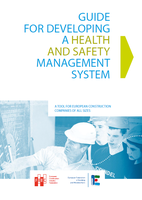  Occupational
health and safety in the building industry Occupational
health and safety in the building industry
A handbook developed in a joint project by European level trade unions and the building industry’s employer associations was published in June 2012. It contains a check list for the initial introduction of an occupational health and safety management system and twelve instruction cards on how to fully use and further develop an already existing system. The handbook may be of particular interest to EWC members since it is available in twelve languages.
  Industrial relocation guidelines Industrial relocation guidelinesIt has become common practice to relocate parts of a company abroad to reduce costs. Off-shoring projects do not however always come up to expectations. The Hans Böckler Foundation released these guidelines in September 2012, to assist works councils, particularly in medium sized companies, in developing feasible alternatives to industrial relocation with the employer. Volume 1 contains empirical results from interviews which highlight the practical decisional process; volume 2 describes the stages, methods and fundamentals of a location decision. It finishes with suggestions on how to conduct any negotiations. The publication is available only in German.
In November 2012, the Friedrich Ebert Foundation published a short 13-page comprehensive analysis of trade unions in Japan. It contains a review on their history, describes the essential aspects of labour legislation and collective bargaining, and shows how trade unions are dealing with the economic crisis and their relationship with the Democratic Party, which was in government from 2009 to 2012. Although the unemployment rate is only 4.5%, nowadays more than one third of all employment contracts can be considered as precarious – and the trend is rapidly increasing. In 2010 only 18.5% of all employees were unionized, a further decrease has however been avoided in recent years.
 Employee representatives from
firms with Japanese parent companies are holding a seminar from 15th to
17th May 2013 in Hamburg, to exchange their special working
experiences. Both EWC members and local works council members may
participate. Employee representatives from
firms with Japanese parent companies are holding a seminar from 15th to
17th May 2013 in Hamburg, to exchange their special working
experiences. Both EWC members and local works council members may
participate.
Industrial relations in Switzerland
 Employee representatives from companies with headquarters in Switzerland or those having large sites there are meeting from 11th to 13th September 2013 in Zurich.
|
|
12. The EWC
Academy: Examples of our work
|
  Second EWC conference in London Second EWC conference in LondonWith 44 participants from nine countries the attendance to the EWC Academy conference held on 25th and 26th October 2012 in London was stronger than in the previous year. The focus was put on labour relations in the United Kingdom and EWC topics from a British standpoint. Due to the large demand there will be another conference organized next year in London. In the autumn of 2013, the EWC Academy will also be offering a seminar on the better use of consultation rights for English-speaking employee representatives.
Five-day in-house seminar at Airbus   The
EWC members of Airbus met from 10th to 14th December 2012 in their
company training center near Bordeaux. The seminar, organized by the
EWC Academy, dealt in detail with labour relations in the participating
countries (Germany, France, Spain, UK). Further emphasis was put on
optimization of the consultation procedure. The EWC members developed
hereby a flow chart, which is to be discussed with central management
in the next meeting. Airbus has a European divisional works council
under the umbrella of the EADS holding (see report in
EWC News 1/2012). The
EWC members of Airbus met from 10th to 14th December 2012 in their
company training center near Bordeaux. The seminar, organized by the
EWC Academy, dealt in detail with labour relations in the participating
countries (Germany, France, Spain, UK). Further emphasis was put on
optimization of the consultation procedure. The EWC members developed
hereby a flow chart, which is to be discussed with central management
in the next meeting. Airbus has a European divisional works council
under the umbrella of the EADS holding (see report in
EWC News 1/2012).US automobile supplier: new term of office for the EWC   The
European works council of Dana began its new term of office with a
meeting held from 10th to 14th December 2012 in Essen. The EWC Academy
delivered several days of training on EU labour relations and analyzed,
with the representatives from seven countries, the essential points to
be renegotiated in their EWC agreement, which had not been updated
since the establishment of the EWC in 2000. Under the new EU Directive
the number of members in the EWC would almost double. The
European works council of Dana began its new term of office with a
meeting held from 10th to 14th December 2012 in Essen. The EWC Academy
delivered several days of training on EU labour relations and analyzed,
with the representatives from seven countries, the essential points to
be renegotiated in their EWC agreement, which had not been updated
since the establishment of the EWC in 2000. Under the new EU Directive
the number of members in the EWC would almost double.Some impressions from other seminars 
|
|
13.
Current training schedule
|
|
The EWC Academy and its forerunner organization have been organizing and delivering conferences and seminars for the members of European works councils, SE works councils and special negotiation bodies since January 2009. So far 450 employee representatives from 183 companies have taken part including many of them for several times. This represents around 18% of all companies in Europe with an established EWC. For 2013 a new brochure is now available, giving an overview of planned dates. Additional events and topics are in preparation. 5th Hamburg Conference for European and SE works councils   As every year since January
2009, a two-day conference is being organised in Hamburg covering the
following topics: As every year since January
2009, a two-day conference is being organised in Hamburg covering the
following topics:Monday, 28th January 2013: Current trends in the EWC landscape - new court rulings and examples of EWC work Tuesday, 29th January 2013: Visit to the Airbus plant in Hamburg and presentation by members of the Airbus EWC Social
Networking in works council work
 An
international seminar on Web 2.0 is being held from 4th to 6th February
2013 in Hamburg. The networking of works councils with colleagues at
home and abroad, direct communication with management and specialists
facilitate a more rapid exchange and a better access to relevant
information. What kind of rules should be developed? What is the
practical experience on both sides of the German border? An
international seminar on Web 2.0 is being held from 4th to 6th February
2013 in Hamburg. The networking of works councils with colleagues at
home and abroad, direct communication with management and specialists
facilitate a more rapid exchange and a better access to relevant
information. What kind of rules should be developed? What is the
practical experience on both sides of the German border?Basic business economics in international companies   Works
council members must be able to critically analyze performance metrics,
analytical accounting systems, location studies as well as
profitability reports. This can only be accomplished with a basic
knowledge of business economics. The basic business economics seminar
held from 18th to 22nd February 2013 can be recommended not only for
EWC members, but also for employee representatives on economic
committees or supervisory boards. Works
council members must be able to critically analyze performance metrics,
analytical accounting systems, location studies as well as
profitability reports. This can only be accomplished with a basic
knowledge of business economics. The basic business economics seminar
held from 18th to 22nd February 2013 can be recommended not only for
EWC members, but also for employee representatives on economic
committees or supervisory boards.
European works council conference in Bucharest 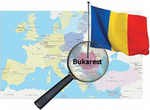 From
20th to 22nd March 2013, works council members from Germany and other
West-European companies with sites in Romania have the opportunity to
gain an on-the-spot insight into industrial relations and the economic
situation, to discuss with Romanian employee representatives and to
make contacts. The example of Nokia will be presented: after the
closure of the German factory Bochum, a plant was opened in Romania,
but nevertheless closed four years later (see report in
EWC News 3/2011). From
20th to 22nd March 2013, works council members from Germany and other
West-European companies with sites in Romania have the opportunity to
gain an on-the-spot insight into industrial relations and the economic
situation, to discuss with Romanian employee representatives and to
make contacts. The example of Nokia will be presented: after the
closure of the German factory Bochum, a plant was opened in Romania,
but nevertheless closed four years later (see report in
EWC News 3/2011)."Song
and dance act" or
fully-fledged European works council?
  A
seminar is being held in Montabaur castle (photo) from the 2nd to 5th
April 2013 which highlights the new legal situation of information and
consultation in relation to restructuring. How can a European works
council concretely put into practice the consultation procedure and
prepare a legally water-tight opinion? The seminar is also suitable for
SE works council members. A
seminar is being held in Montabaur castle (photo) from the 2nd to 5th
April 2013 which highlights the new legal situation of information and
consultation in relation to restructuring. How can a European works
council concretely put into practice the consultation procedure and
prepare a legally water-tight opinion? The seminar is also suitable for
SE works council members.EWC Initiation seminar An introductory seminar will again take place in parallel. It is directed to newly elected EWC members and to works council members seeking information on the establishment of a EWC. It is also suitable for SE works council members. Language courses: Business English for German-speaking works council members Two language courses are planned in 2013: from 4th to 7th February 2013 in Hamburg and from 2nd to 8th June 2013 in Eastbourne. In-house events Please find a summary of possible topics for in-house events here: |
|
14. Imprint
|
|
EWC News is published by:
EWC Academy GmbH Rödingsmarkt
52, D-20459 Hamburg
Authors collaborating on this issue: Werner Altmeyer, Rita da Luz, Rudolf Reitter, Bernhard Stelzl Distributor of the German version: 18,642 readers Distributor of the English version: 2,826 readers Distributor of the French version: 2,884 readers
Newsletter archive: www.ewc-news.com
We are always pleased to receive comments and suggestions in relation to this newsletter as well as reports on your EWC activities. Please write us at: info@ewc-academy.eu
|
 Legal proceedings on transnational matters in six
countries
Legal proceedings on transnational matters in six
countries













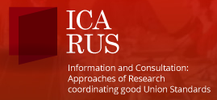


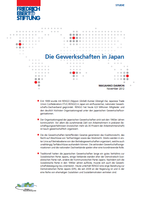 Trade
unions in Japan
Trade
unions in Japan